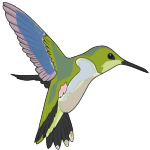Kids Can Be Clueless
Focusing on ADHD behavior
By Joyce Divinyi, author of Good Kids, Difficult Behavior
I can hear some reader saying, "Oh, my son/student knows the rules, he just doesn't care." There may be some truth in that statement, but knowing the rules is one thing, and being conscious of them, and being aware of what one is doing at all times, is another matter. Children have to be taught to pay attention to what they are doing at a given moment. The best way to teach self-awareness is to constantly call their attention to what they are doing. This method does not require nagging or constant chastising. It does require questions.
The most frequently asked question should be: "Excuse me, what are you doing?"
You will be amazed how often the child or teen in question has to literally do a momentary check-in to see what they are doing. They need that check-in. They can be, and often are, totally oblivious of what they are doing. I've seen children crawl under a chair or table and not even realize they have done it.
Children and teens need to be coached to pay attention to what they are doing. Often parents or teachers will assume that a child who appears oblivious just does not care. It is much more likely that hey are simply not aware. The "What are you doing?" question is a coaching too. It doesn't need to be said like a accusation or be delivered with sarcasm. A tone of voice that implies that the child is stupid or clueless will only make them defensive. A negative or hostile tone of voice will put the focus n you and not on them. It will not call their attention to their own behavior.
Occasionally, I will address a teenager whose body language is very threatening. And ask them to freeze long enough to look at what their body is doing. Many times they have no clue that hey are "up in someone's face" and will usually readily back off once they are aware. They have not yet learned to self-observe. Without some idea of what they are doing at given moment, it is hard for them to change their behavior. This is even truer of little children.
For instance, when a child is running when they are supposed to walk, it is sometimes necessary to just say, "Walk!" Other times, it is helpful to point out what they are doing and let them make the connection. Asking, "What are you doing?" can be the simple reminder they need, because it requires them to check in with themselves, not just obey.
